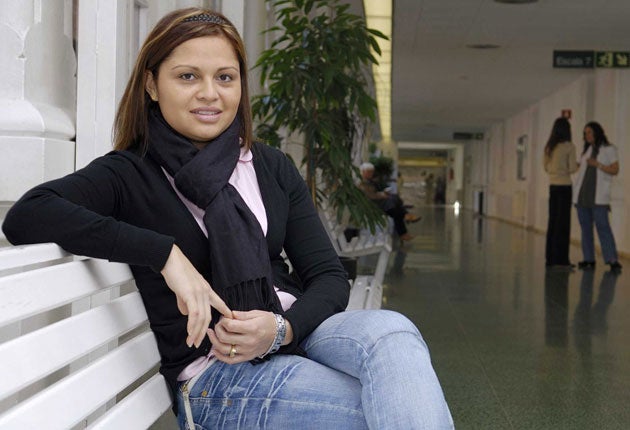You're not boarding with that – how transplant pioneers were grounded
Private jet chartered after easyJet refused to carry stem cells

Your support helps us to tell the story
From reproductive rights to climate change to Big Tech, The Independent is on the ground when the story is developing. Whether it's investigating the financials of Elon Musk's pro-Trump PAC or producing our latest documentary, 'The A Word', which shines a light on the American women fighting for reproductive rights, we know how important it is to parse out the facts from the messaging.
At such a critical moment in US history, we need reporters on the ground. Your donation allows us to keep sending journalists to speak to both sides of the story.
The Independent is trusted by Americans across the entire political spectrum. And unlike many other quality news outlets, we choose not to lock Americans out of our reporting and analysis with paywalls. We believe quality journalism should be available to everyone, paid for by those who can afford it.
Your support makes all the difference.The transplant of a lab-grown trachea was widely hailed as a major breakthrough in the science of stem- cell technology this week. But it almost never happened.
Yesterday it emerged that the mad dash to get the stem cells from Bristol – where they had been grown – to Barcelona, was delayed by obstinate airline staff. With a 16-hour window to transport the cells, the international medical team had to get to Barcelona as soon as they could. But despite the significance of the operation on Claudio Castillo, 30, they opted to fly easyJet to save money.
Yesterday, senior members of the team claimed check-in staff nearly jeopardised the entire operation by refusing to allow the stem cells on the plane, having initially agreed to the carriage. As a result, according to the doctors, the team was forced to charter a private jet for £14,000.
Professor Martin Birchall, a lead researcher on the project, said he had several conversations with the airline hours before the flight, and was given repeated reassurance it would be fine to take the cells on board. But when they arrived at the airport, the airline refused, said Professor Anthony Hollander, another scientist involved: "Check-in staff said they couldn't take the material on board, because it could be dangerous.
"After significant debate, we concluded that it wasn't going to happen."
"The clock was ticking," added Professor Birchall, "We had taken the cells out of their culture an hour before. We thought about driving to Barcelona, but that would have taken too long." In the end, the last-ditch scramble to transport the cells was only made possible by the ingenuity and quick-thinking of a German student on the trip, Philip Jungerbluth. "Philip knew a German surgeon who he said used to fly. We had a couple of conversations, and within two hours the surgeon was in Bristol – with his private jet".
EasyJet denies it initially agreed to carry the cells. Andrew McConnell, a spokesman for the airline, said calls for cell and organ transport are usually taken by the company's call centre in Poznan, Poland – but no such call was received on this occasion. "We do deal with human organs and would make an exception for a tight schedule, but there is no record of a passenger request to carry medical materials on board the flight," he said.
Join our commenting forum
Join thought-provoking conversations, follow other Independent readers and see their replies
Comments